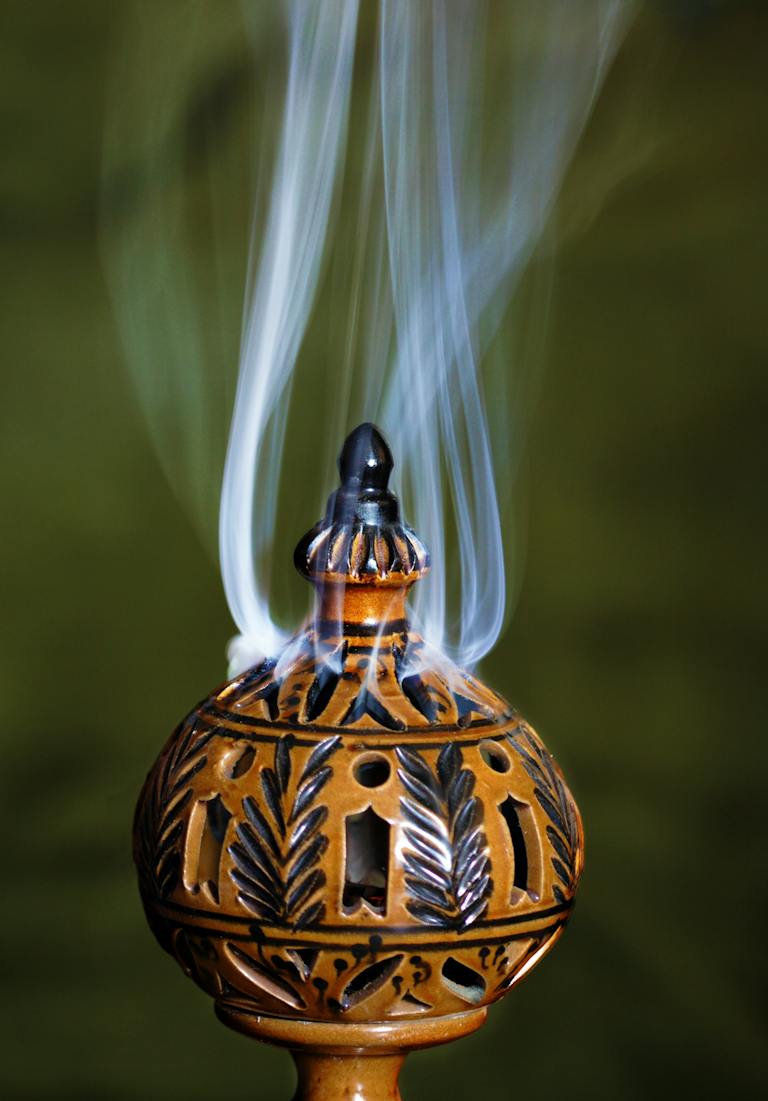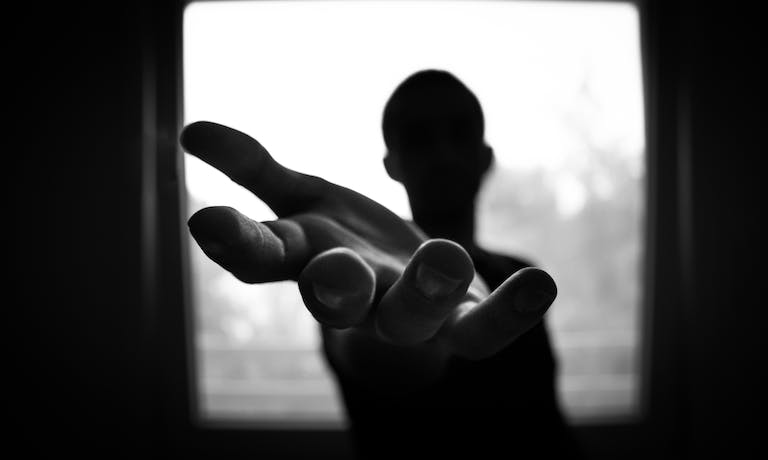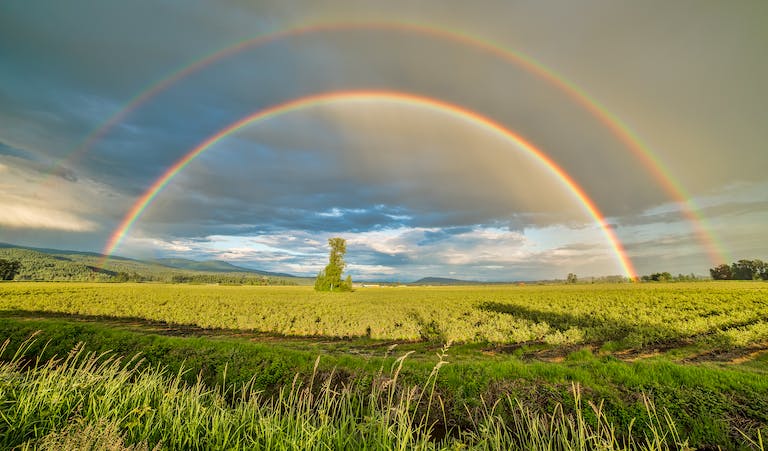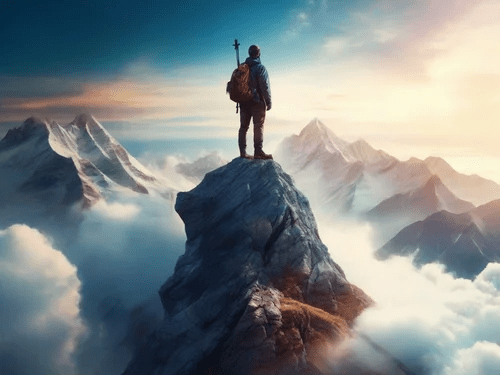There is the known, and there is the unknown. There is certainty, and there is uncertainty. Both sides of this paradox are important. However, most of us cling to certainty and the known. When things are uncertain, we can obsess about how they will work out. This is the “monkey mind” people talk of in meditation circles. The mind jumping rapidly, not going into the emptiness, running fast about the happenings of the recent days and all the things to do. If this describes you, don’t worry. This post here is intended to help with turning the thoughts off and going into the emptiness, the vacancy of mind that Franz Bardon talks about in the first step of Initiation Into Hermetics. It is the first step that begins a lifetime journey. Indeed, some spiritual gurus teach vacancy of mind primarily, as their chief teaching.
Franz Bardon’s cosmos is wide and deep, laying out the forces that describe this Infinity and Eternity in which we live. Most of his works stick with the known. However, there is a flip side to this known that Bardon holds dear. This is the principle that everything that has happened, is happening, and will happen occurs only by the will of Divine Providence. An obsessive need for control is, in a sense, fruitless. No progress can be made without Divine Providence ordaining it to be. So with this cosmos of the known that we go through as we go through Initiation Into Hermetics, there is always this flip side of the control of Divine Providence.
However, most of our racing thoughts and inability to attain emptiness of mind are not related to Bardon work. They deal with our everyday lives and all the uncertainty that can drive anxiety and worry, or, at the least, an inability to turn our mind off. So, what is there to do?
I Don’t Know
My suggestion is what Zen Buddhism will call “I-Don’t-Know-Mind.” For everything that arises in mind, there is quite often a question. We can answer it with “I don’t know,” which is true. Ultimately, we don’t know, and the world is uncertain. We can train ourselves to get used to uncertainty. And reminding ourselves constantly that we don’t know opens up and clears away all the noise in our head. Our consciousness and our mind expand with this simple principle.
What’s going to happen tomorrow? Should I have said that today to my co-worker? What about the bills to pay and the things to do? What about my regrets of the past and how I’ve constructed my life to be? We don’t know. What about the deeper questions concerning spirituality and growth? What happens after death? Do we really know, like know for certain? We don’t. And this not knowing is our friend, the ally of Mind and Spirit to expand. The space will open in your mind.
My history
I write not from theory, all though there is plenty of that in Buddhist and Hindu literature, even in Christian Mysticism in the classic work The Cloud Of Unknowing. I write from experience. I used to worry a lot, obsess about getting things right. Double check if the door was locked. Wonder if I would have enough money to live. And especially, worry and obsess over romantic interest and women. That was a huge one. And many times, I would take a break from dating, just so the worry about it wouldn’t overtake me. But what got me out of this condition was not abstinence from certain things; it was this I-Don’t-Know mindset. I just negated every worry, every concern, with resting in uncertainty and admitting that I didn’t know. Even things that seemed clear to me became thoughts to overturn with unknowing.
This is how the void opened up for me. The repetition of I Don’t Know, constantly. It left me almost thoughtless for hours on end, where my attention would simply be on the physical surroundings and the people nearby, if any, but my attention would not be in my head. Indeed, most of our attention naturally stays in our mind.
One interesting proposition of a Zen Buddhist teacher made some of this clear. He asked the group, “where does the you reside? Where are you located in your body?” Most everyone in the group answered that they were behind the eyes in the head. The teacher said he used to be that way, too. But with a combination of lots of meditation, as well as physical exercise, he found himself in other parts of the body, too. The self expanded. And I share this story because the constant reminding of yourself that you don’t know and that things are uncertain will put the “you” in other parts of your body, often it drops to the heart, accordiing to my experience, but it can also expand outwards equally into all part of your body.
I cannot emphasize this point enough, and it is something that often goes unmentioned by Bardon practitioners, and even, emphasized less in Bardon’s writing. In my opinion, much of Bardon’s writing is from a masculinist perspective, and the “I-Don’t-Know” mind and being uncomfortable with uncertainty is the female principle, the yin, the surrender, the letting go of it all and floating your consciousness so wide that it seems to extend beyond the walls of your meditation room.
There is another story by a Zen Master answering questions from his student. And one student asked, with other students agreeing with the importance of the question.
“With all the emptiness we are resting in, we still have to make choices. What are we going to do for a job to make money? That question seems very important.”
But the Zen Master answered in a manner of negation. “Every time I travel from here to the next city, I must decide whether I travel by train or bus. Often, up to the day of departure, I can still not decide which way to travel. But I am not perplexed by it.”
His answer seems to be lowering the standards on how we weigh certain decisions. Perhaps they are not so vital as we tend to think. Perhaps any choices are good ones, or, at the least, they are ones that happen. So ask yourself, “Do you really know?” And relish the fruits that mantra always gives.




